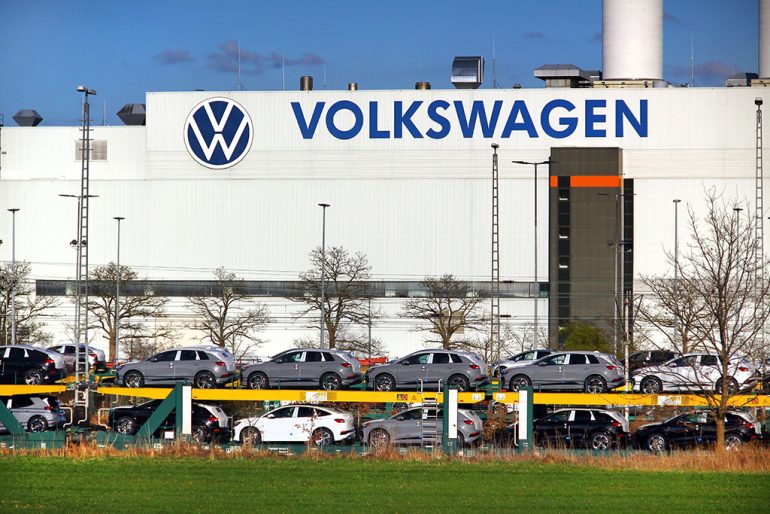
Volkswagen, Europe’s largest automaker, faces a challenging financial landscape as third-quarter earnings plummeted, prompting calls for urgent cost reductions across its German operations. The company reported a net profit of €1.58 billion ($1.7 billion) for the July-September period, a drastic 64% decline from the €4.35 billion ($4.6 billion) profit seen during the same period last year. With this unexpected financial downturn, the company is now in tense talks with employee representatives, grappling with the looming threat of plant closures and potential job cuts.
Volkswagen’s third-quarter revenue held steady, dropping just 0.5% to €78.49 billion ($83.3 billion). Yet, despite stable sales, significant challenges are forcing the company to rethink its operations and cost structures. In early September, the company signaled that it may need to close several German plants due to rising pressures from new competitors and an increasingly costly manufacturing environment in Germany. This news has stirred tensions with labor unions, which have been integral to the company’s German production workforce of 120,000 employees across 10 plants.
Also, don’t forget that you can get discounted new car pricing with a free quote through qualified local dealer partners.
Volkswagen’s 1994 job protection pledge, which promised to safeguard German jobs through 2029, is also under scrutiny. With Germany facing rising costs and increased competition, particularly from low-cost Chinese electric vehicles (EVs) entering the European market, Volkswagen’s CFO, Arno Antlitz, expressed that “painful decisions” must be made to keep the company competitive.
“We’ve not forgotten how to build great cars, but the costs — specifically in our German operations and factories — are far from being competitive,” Antlitz said, underscoring that operations as they currently stand are unsustainable.
Facing an uncertain future, Volkswagen’s employee representatives are determined to secure a more balanced approach that safeguards jobs. IG Metall, Germany’s largest industrial union, is pushing back against the possibility of closures and layoffs. Thorsten Gröger, a regional leader with IG Metall, urged Volkswagen to explore alternatives and negotiate with the goal of preventing closures, while Daniela Cavallo, head of Volkswagen’s employee council, reinforced that labor cost negotiations must encompass a broader strategy for the company’s future.
“We are not prepared to talk about labor cost targets in isolation; we want to work out a master plan, a future plan for the company together in which plant closures and layoffs are ruled out,” Cavallo emphasized.
With tensions mounting, Volkswagen faces the expiration of its no-strike clause under the current wage deal on December 1, opening the door for potential industrial action if talks stall or fail to produce agreeable outcomes.
Several factors are converging to pressure Volkswagen’s German operations. German industry is facing economic stagnation, and the automaker has cited stiff competition from Chinese EV brands entering the European market, which are often more affordable. This influx challenges legacy automakers in Europe, who must meet environmental targets while balancing the high costs of labor, energy, and compliance.
Volkswagen’s results highlight the effects of what Antlitz describes as a “volatile environment characterized by intense competition.” He pointed to the pressing need to find cost-effective ways to keep operations running without compromising on quality or brand reputation. As part of this, Volkswagen is examining the possibility of significant adjustments across its German production network to align with its EV-focused future.
Volkswagen’s situation underlines the precarious balance between maintaining its traditional manufacturing stronghold in Germany and the financial necessity to cut costs in an evolving automotive landscape. As the company approaches an all-electric future, strategic adjustments are inevitable. However, both the automaker’s management and employee representatives appear committed to negotiating a sustainable path forward, though tensions are likely to persist as all sides work toward a resolution.
With a legacy rooted in German manufacturing, Volkswagen’s current financial crossroads could signal a profound shift, not only for the company but for the German automotive industry as a whole. As talks continue, the outcome will have far-reaching implications for Volkswagen’s competitive stance in the global automotive market and the stability of its massive workforce in Germany.